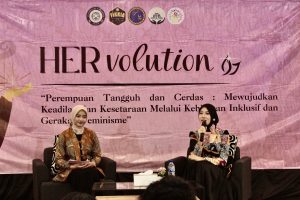UNAIR NEWS – The issue of delayed performance allowances (tukin) for Civil Servant (ASN) lecturers has drawn significant public attention recently. For five years, the allowances have not been disbursed by the government, affecting only lecturers under the Ministry of Higher Education, Science, and Technology (Kemendikti Saintek).
Prof Dr H Jusuf Irianto Drs M Com, a public policy expert at Universitas Airlangga (UNAIR), attributed the delay to ongoing legal and bureaucratic processes. “This matter stems from legal formalities and procedural requirements that must be handled prudently to comply with existing regulations,” Prof. Irianto explained.
Progress on allowance implementation
Kemendikti Saintek is actively working to ensure the disbursement of performance allowances for all ASN lecturers under its authority. At the same time, the ministry is finalizing a draft Presidential Regulation (Perpres), which will provide the legal framework required for the payments. This regulation, classified as derivative legislation, is essential to authorize the disbursement.

Prof. Irianto clarified that Kemendikti Saintek, as a newly formed ministry resulting from the restructuring of Kemendikbud Ristek, had already allocated IDR 2.8 trillion for performance allowances. This allocation has been submitted to the House of Representatives (DPR) for approval.
Based on the Minister of Education, Culture, Research, and Technology’s Decree No. 447/P/2024, ASN lecturers are expected to begin receiving allowances in early 2025. The payment amounts will vary by functional position: assistant lecturers (functional grade 9) will receive IDR 5 million monthly, lecturers IDR 8.7 million, associate professors IDR 10.9 million, and full professors IDR 19.2 million.
However, Prof. Irianto pointed out that changes in organizational nomenclature have disrupted salary and allowance systems for lecturers. He noted that regulations issued by the previous minister, Nadiem Makarim, were not accompanied by a Presidential Regulation, rendering the allowances legally unenforceable. “These nomenclature inconsistencies have created substantial barriers to processing the payments,” he stated.
Demands from Adaksi
The ASN Lecturers Alliance of Kemendikti Saintek Indonesia (Adaksi) has called on the government to immediately release the delayed allowances, which have been pending since 2020. The group has warned of nationwide protests if the government fails to provide a resolution by Friday, January 24, 2025.
The legal basis for performance allowance payments is outlined in Law No. 15/2014 on Civil Servants (ASN), supplemented by Ministerial Regulation (Permenpan RB) No. 6/2022 on ASN Employee Performance Management. These regulations require additional support from a Presidential Regulation and technical guidelines for fund allocation and disbursement. “The ministry has yet to finalize these legal steps. ASN lecturers need to remain patient as the process moves forward,” Prof. Irianto commented.
Impact on lecturer productivity
The prolonged uncertainty surrounding the policy is raising concerns about its potential impact on lecturers’ performance in fulfilling the Tridharma of Higher Education. “Policy uncertainty caused by poor preparation and complexity is one of the factors that can adversely impact employee performance,” he added.
Prof. Irianto urged the government to expedite the completion of regulations needed to facilitate the payment of allowances in 2025. “The government must demonstrate its credibility as a regulator by producing clear, precise, and actionable policies that avoid unnecessary confusion,” he emphasized.
He expressed optimism that the bureaucratic and legal obstacles could soon be resolved, ensuring that ASN lecturers receive their long-awaited allowances as scheduled in 2025.
Author: Anggun Latifatunisa
Editor: Yulia Rohmawati









